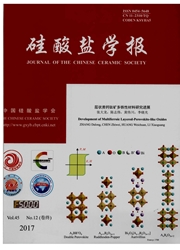

 中文摘要:
中文摘要:
对比研究了标准养护(20℃、相对湿度≥90%)、高温养护(50℃)以及温度匹配养护对高强混凝土的抗压强度发展规律的影响。结果表明:提高养护温度到50℃以上可显著激发水泥–磨细矿渣粉和水泥–粉煤灰–硅灰复合胶凝材料的反应活性,复合胶凝材料混凝土的3 d强度提高1倍以上,并使其后期强度持续增长,但对纯水泥混凝土的后期强度发展有抑制作用;当胶凝材料处于结晶成核与晶体生长或相边界反应阶段时,混凝土强度随之明显增长,当水化反应进入扩散控制阶段时,混凝土强度增长幅度减小,各种混凝土之间的差别也变小;无论何种养护条件,用水泥–粉煤灰–硅灰复合胶凝材料配制的混凝土都具有最高的强度和最好的抗氯离子渗透性能,适合配制高强混凝土。采用标准条件养护的试件进行强度测定,基本能反映实体结构内部混凝土长龄期的状态。
 英文摘要:
英文摘要:
The effect of three curing regimes of standard condition (20℃、relative humidity≥90%), elevated temperature of 50℃and temperature match condition on compressive strength development of high-strength concrete. Results show that elevating curing temperature higher than 50℃ can significantly increase the activity of composite binders consisting of cement-ground granular blast furnace slag(GGBS) and cement-fly ash-silica fume. The compressive strength of concrete prepared with these composite binders and cured at elevated temperature is twice of that cured in the standard condition in 3 d age and continues to grow in long age. The elevated temperature curing regime restrains the compressive strength development of concrete prepared with only Portland cement in long age. Strength of concrete increases greatly when the hydration of binder goes intensively in the stage of nucleation and crystal growth or interaction at phase boundaries. The increasing extent for strength of concrete and its difference among concretes declines when the hydration of binder goes into the stage of diffusion. Concrete prepared with cement-fly ash-silica fume composite binder cured in any regime has the highest strength and the best resistance to chloride ion penetration. This composite binder is suitable for the preparation of high-strength concrete. The strength determined using a sample cured under the standard condition can approximately reflect the property of concrete in real structure for long term.
 同期刊论文项目
同期刊论文项目
 同项目期刊论文
同项目期刊论文
 期刊信息
期刊信息
